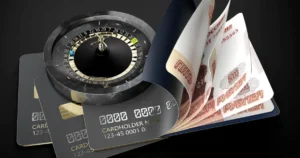Canadian lottery winners can feel like millionaires. The jackpot for the Lotto Max increased to $70 million in May. However, the taxes associated with winnings in the Canada lottery can make winnings feel even more elusive. In this article, we will look at the various types of lottery in Canada and the types of winners who can be expected to pay them. Moreover, we’ll look at the threats of murder against lottery winners. After reading this article, you will be well-equipped to become a lottery winner and take home the prize.
Lotto Max jackpot increased to $70 million in May 2019
A ticket sold in the province of Ontario, Canada, has won the maximum Lotto Max jackpot three times in the last seven years. The latest winner of a Maxmillions ticket is a woman from Brampton, Ontario. The winner purchased the ticket while traveling along Highway 1, and the lottery company confirmed that it was a winning ticket. The winning ticket is worth more than $70 million, which could pay for an $18.5 million twin-pad arena.
A record-breaking jackpot of $70 million will be awarded in tomorrow’s Lotto Max draw, which will be held on Friday. Last year, the BCLC raised the maximum Lotto Max jackpot to $70 million. The lottery also added an extra draw every Tuesday, increasing the ball pool from 49 to 50 and creating two additional prize tiers. Because of these changes, the jackpot increased faster than ever, and the lottery set a new record for the largest jackpot.
The maximum Lotto Max jackpot has never been hit since November 29, 2018. This means that the lottery will continue to rise in value. Each time that a prize goes unclaimed, the jackpot cap will increase by $5 million. On Tuesday, the maximum Lotto Max jackpot will hit the $70-million mark. It is not clear when the new jackpot will be hit, but the lottery is expected to grow faster than ever. The jackpot will reach the new cap of $70 million faster than ever before.
The maximum jackpot for the Lotto Max lottery has doubled since its launch in 1974, when the first prize of $1 million was won. The second jackpot hit $60 million on January 6 2017. It was followed by a $62 million prize on June 8 of this year, resulting in a record-high $50 million Maxmillions prize. With the latest jackpot, the chances of a winning ticket are much greater than ever before.
The biggest jackpot in Canada since 2000 is the $70 million in May draw on May 14, 2019. The first winner of this prize was from Chatham-Kent, which was announced on Jan. 7. If the jackpot is won again in the same region on Jan. 7, another lucky ticket holder will share it with him. If you’ve won a Max Million, your chances of winning the jackpot are one in 33,294,800.
The second winner of the Lotto Max jackpot in B.C. was Madelaine and Harold Thomas, who won $5 million. This was the sixth consecutive draw with a $20 million jackpot. The money raised by the Lottery Corporation in 2019 will help fund community groups and health care in B.C. It is projected to be worth more than $1 billion in the coming years. The lottery jackpot will continue to increase as players’ wallets become fatter.
Taxes on lottery winnings in Canada
If you’ve won the lottery, you might be wondering if taxes will be due on your prize. First of all, lottery winnings are usually tax-free in Canada. This is due to the fact that they’re considered windfalls and are therefore exempt from taxation. This is especially true for charitable lottery prizes, such as those from local hockey teams or the Big Brothers/Big Sisters travel lotto vouchers.
For example, if a relative wins a lottery, they can share the prize with other members of their family. The relative won’t have to pay taxes on the money if they give it as a gift. Canada has no gift tax, so any amount can be gifted to anyone. That makes tax-free lottery winnings in Canada even more attractive. And, if you’re not sure how to handle tax-free lottery winnings, check out these tips to make sure you don’t get caught in the red tape.
As for the US, winnings from the Powerball lottery are taxed by the IRS. Whether they were a free prize or the prize of a trivia question, the amount of tax owed will depend on the type of winnings. If you don’t live in the US, you’ll have to pay income tax on the cash value of your prize, which can be as high as 25% of the total prize.
Another difference between taxation on gambling winnings in the United States and Canada is the withholding tax. For a Canadian, gambling winnings that exceed $1200 USD are tax-exempt. However, Canadians living in the U.S. can deduct their losses from their Canadian income and still keep the winnings without paying taxes. The Canadian income tax code does not consider gambling as a business activity. Therefore, Canadian lottery winners can keep the full amount of their prize without worrying about income taxes.
However, if you’re a resident of the United States, you’ll have to report the lottery winnings in the U.S. Unlike the US, Canada’s tax law is more favorable to lottery winners. The Internal Revenue Service has the power to withhold 30 percent of foreign gambling winnings, and it’s very hard to argue with that! So, how do you decide whether to report your lottery winnings in Canada?
While lottery winners in Canada should generally be treated as ordinary income, there are specific circumstances that could lead to high taxes on lottery winners. For example, if you won the lottery on Lotto Max, you could be liable for a 37% tax on your winnings. However, if you won the lottery on the National Lottery, the amount you owe would be lower. In such a case, you would still need to plan your taxes when filing your tax returns.
Threat of murdering lottery winners
A Quebec city police force foiled a bizarre extortion and murder plot last week. Edwin Scarlotte Mata Lima, a Mexican citizen, was arrested on Monday in a Montreal neighbourhood. He was arraigned yesterday on charges of conspiracy to abduct and murder. The 21-year-old Mexican national had arrived in Canada about four months ago. He is accused of planning the murder of two lottery winners, Zenovij Pacholuk and Dolores Coffey.













